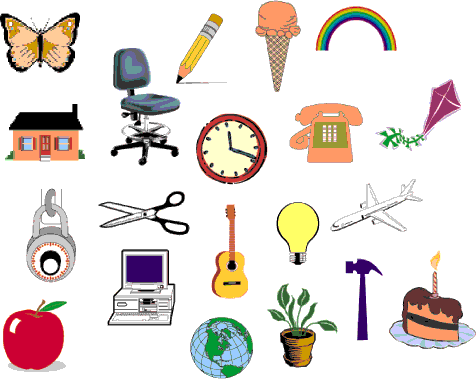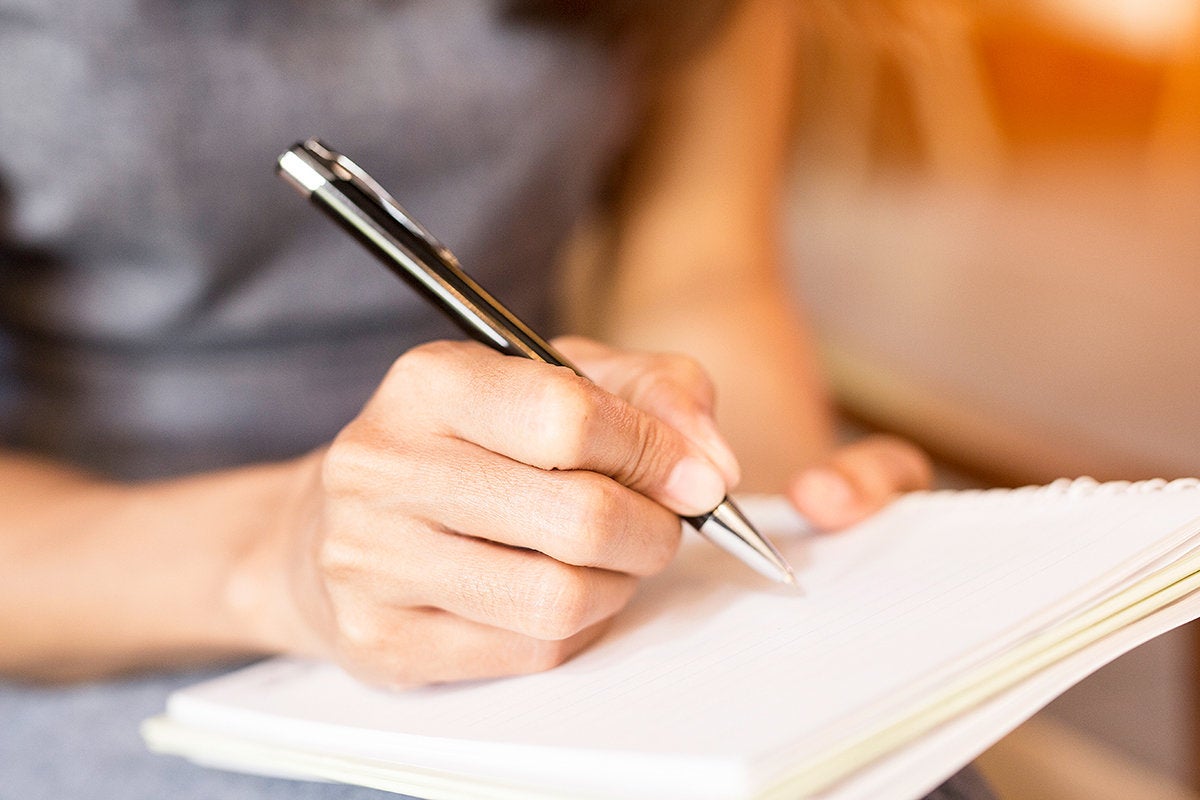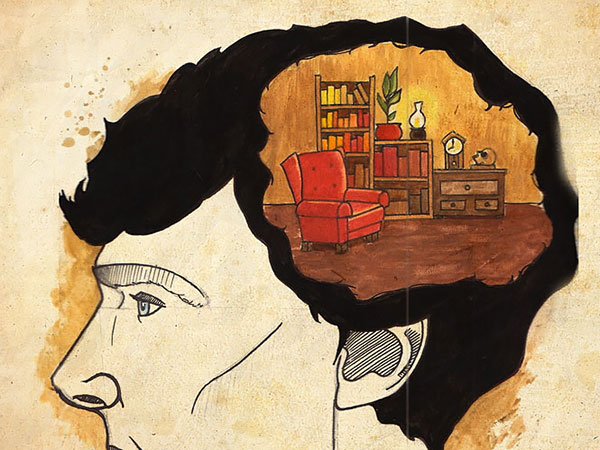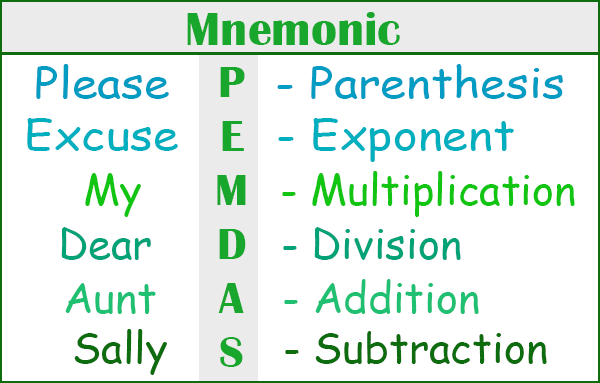
Welcome to How to Improve your Memory!
Before I start, I want you to stare at that picture above for 10 seconds, no more and no less. Done? Alright, let’s get started with how to improve your memory!
Memory is a crucial part of our lives. We use our memory to acquire, store, retain, and later retrieve information. (verywellmind) “Human memory involves the ability to both preserve and recover information we have learned or experienced. As we all know, however, this is not a flawless process. Sometimes we forget or misremember things. Sometimes things are not properly encoded in memory in the first place.”
What did you eat for lunch yesterday? What was the name of your classmate who sat next to you in 7th grade? And, what outfit did you wear for your 4th birthday? Of course, these things may be hard to remember, except maybe for the first one, but if we work to improve our memory, then we won’t have to give our brains a headache trying to recall something. If you’re like me, you have trouble remembering the simplest of things, like the name of the movie you watched yesterday. It can be very frustrating not being to remember things like these even though it was fresh in one’s mind not long ago. If you can relate, this blog is definitely for you!
Our life is full of precious experiences, with our friends, our family, and also just ourselves. Life is a beautiful movie, and our minds are the camera capturing the moments inside those movies. However, as the movie goes on, the camera’s power is diminishing. It becomes harder for the camera to capture those moments, to remember them. What can we do to make sure that the camera’s battery, our minds, don’t run out of power and energy? What can we do to capture every beautiful moment of our lives?
If it really was a camera, we would have to switch the batteries out. However, our minds are a powerful and mysterious element and it’s capabilities are beyond our imaginations! Unfortunately, there are many diseases out there, including Alzheimer’s and dementia, which affect many people’s memory. Memories are a beautiful and significant part of our lives, so I hope this blog on how to improve your memory helps! It is aimed towards anyone and everyone, with poor memory skills to highly extraordinary memory skills! This blog will list tips and things to do to improve your memory, and I hope that they will help you remember all the sweet things in life! Here they are:
1. Exercise

Working out may be physical exercise, but it also has great benefits for your mind, including improving your memory.
Exercise helps memory and thinking through both direct and indirect means. The benefits of exercise come directly from its ability to reduce insulin resistance, reduce inflammation, and stimulate the release of growth factors—chemicals in the brain that affect the health of brain cells, the growth of new blood vessels in the brain, and even the abundance and survival of new brain cells.
health.harvard.edu
By all these things happening in the brain, the prefrontal cortex and medial temporal cortex grow and gain more volume. “Many studies have suggested that the parts of the brain that control thinking and memory have greater volume in people who exercise versus people who don’t.” (health.harvard.edu)
This definitely helps with memory, but it also helps with many other benefits, both mental and physical! Exercising is a great way to improve your well-being, and you should do it regardless of trying to improve your memory or not!
2. Sleep well

Sleeping is such a vital part of lives that the average human spends one third (1/3) of his/her life in bed! (Tempo) To me, that doesn’t seem like a bad thing since sleeping has many benefits for both our mind and body, including that it improves your memory.
Our memory is about taking information and retaining it in our brains for a long period of time. However, we can’t do that if the brain cells we use to take in information are weak. Lucky for us, sleeping will do the job. According to sleepfoundation, “Sleep actually triggers changes in the brain that solidify memories—strengthening connections between brain cells and transferring information from one brain region to another.”
Researchers have tested this process by teaching people new skills and then scanning their brains after a period with or without sleep. When people have a chance to sleep, for example, after practicing a skill similar to piano scales, the centers of the brain that control speed and accuracy are more active than those regions in people who haven’t slept. Scientists think that while we sleep, memories and skills are shifted to more efficient and permanent brain regions, making for higher proficiency the next day. In fact, sleeping shortly after learning new information has been shown to help retention. Some research indicates that when people learn before going to sleep (or even before taking a nap), they remember the information better in the long term.
sleepfoundation.org
3. Feed your brain

We all know that eating fruits, vegetables, meat, drinking milk, and taking in certain vitamins are healthy for us. Many of us have grown up listening to the words, “They are good for you. They will make you a more healthy person!” Blueberries boost immunity, carrots are good for your eyes, meat and eggs provide protein, milk will make your bones stronger, and all the vitamins will help you grow and be stronger.
Yes, these are definitely all true, but do you know that having a proper diet will also improve your memory?
“Fifty to sixty percent of the brain’s overall weight is pure fat, which is used to insulate its billions of nerve cells. The better insulated a cell is, the faster it can send messages and the quicker you will be thinking. This is precisely why parents are advised to feed their young children whole milk and to restrict dieting – their brains need fat to grow and work properly. Skimping on fats can be devastating even to the adult brain.” (lifehack)
Check out healthline to see the 11 best foods to boost your brain and memory!
4. Don’t stress

Even though we all know that it is not good to stress, we do it anyways. Life is full of stressful situations, and as humans, it is natural to get nervous and anxious. However, if you want to improve your memory, don’t stress!
According to verywellmind.com, “If we are stressed during an event, we may have more difficulty accurately remembering the details of the event later, as the stress we felt colors our perceptions as well as our ability to recall what we perceived at the time. This is part of why eye-witness testimony is so unreliable—people can be absolutely sure they saw something a certain way, but this doesn’t mean that they are correct.”
Like the man in the photo, try meditating and take time to care for yourself!
5. Write things down

Writing is a great habit, regardless of whether you are trying to improve your memory or not. Check out the psychological benefits of writing!
However, if you are trying to improve your memory, here is why you should writing, is a great hobby to adopt:
In a nutshell, if you type your notes, you probably tend to record lectures verbatim. If you put pen to paper, you have to be more selective in recapping key components. Paper notetakers’ brains are working to digest, summarize, and capture the heart of the information. This, in turn, promotes understanding and retention. Mueller and Oppenheimer found that participants who took notes on laptops performed worse on conceptual questions than those who took traditional paper notes.“Laptop notetakers’ tendency to transcribe lectures verbatim rather than processing information and reframing it in their own words is detrimental to learning,” they wrote.
redbooth.com
“Taking organized notes presumably involves deeper and more thorough processing of the lecture information, whereas transcribing requires only a shallow encoding of the information,” they explained.
redbooth.com
So, even though typing things down is much easier than writing, it will help you improve your memory make it easier to remember things!
6. Visualize

When you are visualizing, you are creating an image of something in your mind. Whether you are imagining the structure of a building, a more confident version of you, or something else, you are improving your memory. That is one of the many powers visualizing has on one’s self.
To start, let’s see the steps of how to visualize! According to insanity-mind.com, you should:
- Include in the visualization as many senses as possible. What are you hearing? How does it smell in there? Do you feel any touch? Do not use only vision but all the other senses to make the visualization as vivid as possible.
- Include action in the visualization. Instead of using a kind of picture on your mind, observe how the elements of the picture interact between them. Movies are always better than pictures!
- They should be as appealing as possible. What appeals to you? Usually, violent images appeal to everyone. If you put violence in your images they will increase their probabilities of being remembered.
- Visualizations should be as incredible as possible. Put incredible things in your visualization like giant monsters, inexistent animals or make alive stuff that actually is not (like a chair that moves or drives a car).
Now that you know how to visualize, here’s an example of how it helps you:
For example, let’s say for an upcoming science test you’ll be required to memorize the water cycle. So let’s get started. Visualize in your mind a cloud floating high in the sky. Picture the cloud getting bigger and bigger and until it bursts. Now watch as rain pours from the cloud and hits the ground. See the rain form into small streams, then larger rivers as it flows toward lakes and eventually to the ocean. Visualize the sun shining down on the ocean and evaporating the water and form into clouds which the wind then pushes inland… Anyway, you get the idea, right? (Education Corner)
Check out this website for the science behind why visualization aids memory!
7. Repeat what you’re learning
Another trick to help better remember something is to repeat what you’re learning. “According to Salinas, memory works in three basic steps: encoding, recording, and retrieval. Repeating information gives your brain another opportunity to encode the information you’re hearing, which subsequently makes it easier to condense, store, and retrieve this information later, Salinas said.” (Insider)
8. Create a “memory palace” in your mind

“Memory palace” is a well-known technique to help remember and store things in your brain. It was invented by the Greeks and is used to date by memory experts.
To start off, “White says to start off by imagining the pieces of furniture in a room in your apartment or house. Then assign those pieces of furniture a piece of information that you’re hoping to remember. You’re effectively turning pieces of furniture into a storage place for your data.” (Insider)
For example, let’s say you’re trying to memorize a to-do list for the day, and one of the tasks on your list is buying a gift for a friend’s baby shower. Imagine your living room couch, then imagine a baby bottle sitting on the couch. According to White, “storing” that bottle on your couch will cause you to remember the word bottle, which will then trigger you to remember that you have to buy a baby shower gift.
Insider.com
9. Try these mnemonics

Mnemonics are another really great and quick way to remember something. They make the material more meaningful by adding associations and creating patterns. They also help organize the information in your brain so that you can easily retrieve it later. (Braingle)
Here are some helpful examples of mnemonics you can use:
- Music Mnemonics– The “ABC Song”
- Name Mnemonics– ROY G. BIV = colors of the spectrum (Red, Orange, Yellow, Green, Blue, Indigo, Violet.)
- Expression or Word Mnemonic– Parentheses, Exponents, Multiply, Divide, Add, and Subtract = Please Excuse My Dear Aunt Sally.
These are just a few of many mnemonics! Others include acronyms, images, rhymes, models, and note organization mnemonics! Check out this website for more examples!
10. Train your brain

Last but not least, to improve your memory, it is important to train your brain to work to the best of its ability. This will help you memorize stuff faster and easier, and also help with many other cognitive areas!
Some of the things you can do to train your brain include doing crossword puzzles, sudoku, reading, playing cards, playing chess, learning a new language, learning how to play an instrument, doing things another way, doing math in your head, meditating, and much more! (Amerortho)
Check out this website to learn about the importance of brain training!
The Takeaway
Without scrolling up, how many of the items can you list from the photo above? One, five, ten, or all twenty? Let us know in the comments!
Now, if you weren’t able to recall any of the items, and don’t worry- that’s totally normal- try these tips and in a week, maybe you’ll be able to list most of them! Feel free to let us know in the comments how many items you improved by.
Improving memory is not a one-time thing, and it is definitely going to take some time to see an improvement. Keep doing these tricks, and hopefully, you will surely see a boost in your memory:
- Exercise
- Sleep well
- Feed your brain
- Don’t stress
- Write things down
- Visualize
- Repeat what you’re learning
- Create a “memory palace in your mind”
- Try mnemonics
- Train your mind
For more advice, check out this TED Video on how to triple your memory with one trick. Also, order this book, “Unlimited Memory: How to Use Advanced Learning Strategies to Learn Faster, Remember More and be More Productive.”
This blog was just about how to improve your memory, but it is also important that you make memories that you want to be able to smile at when you’re older. Your mind is under the influence of you and only you. Make memories that you won’t regret, but instead, be happy that you experienced that certain moment/thing.
Our lives are passing by with us watching TV or playing video games 24/7. With this, we are also wasting our camera’s (mind’s) energy on these unnecessary things. Instead, we should fill up our camera with beautiful pictures full of smiles and happiness. Our happiness lies in our lifestyles, what we occupy ourselves with daily. Are you wasting your time playing games and other stuff, from which you don’t gain anything beneficial, or are you spending your time wisely with productive and useful hobbies, from which you are learning and making yourself more successful? Speaking of which, check out this blog on productive things to do! Remember, it is up to you on what kind of lifestyle you want to live.
When you are older and are going through the moments you captured, do you want to see yourself staring into a screen, or do you want to see your younger self exploring new things, finding your passions, and having a smile on your face? From that question, you can change your whole lifestyle, leading to a change in your future! If you ever need help with changing your lifestyle or any advice at all, continue reading our blogs, and don’t hesitate to contact us! Check out our resources page to contact us and don’t forget to take a look at the services we offer! Good luck on your journey in life!
